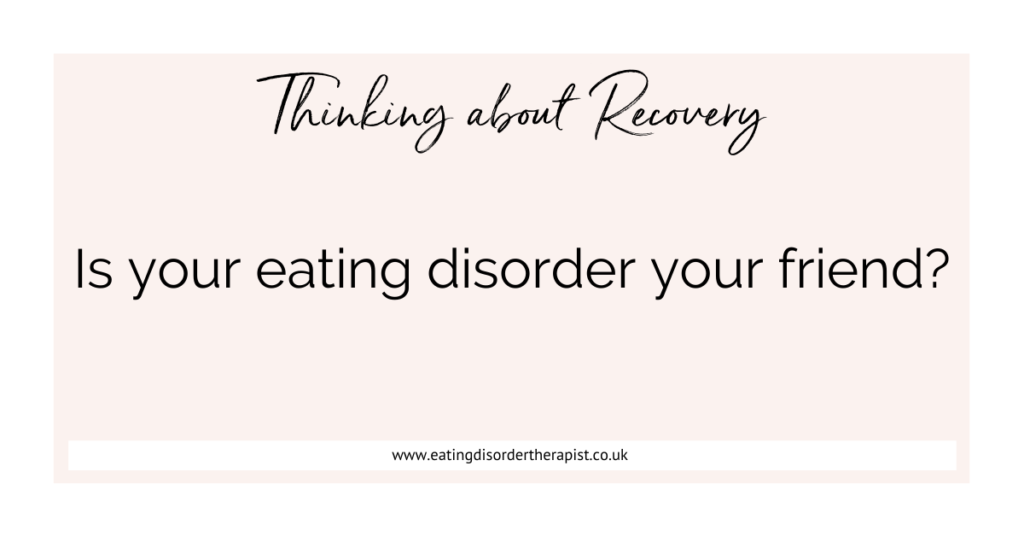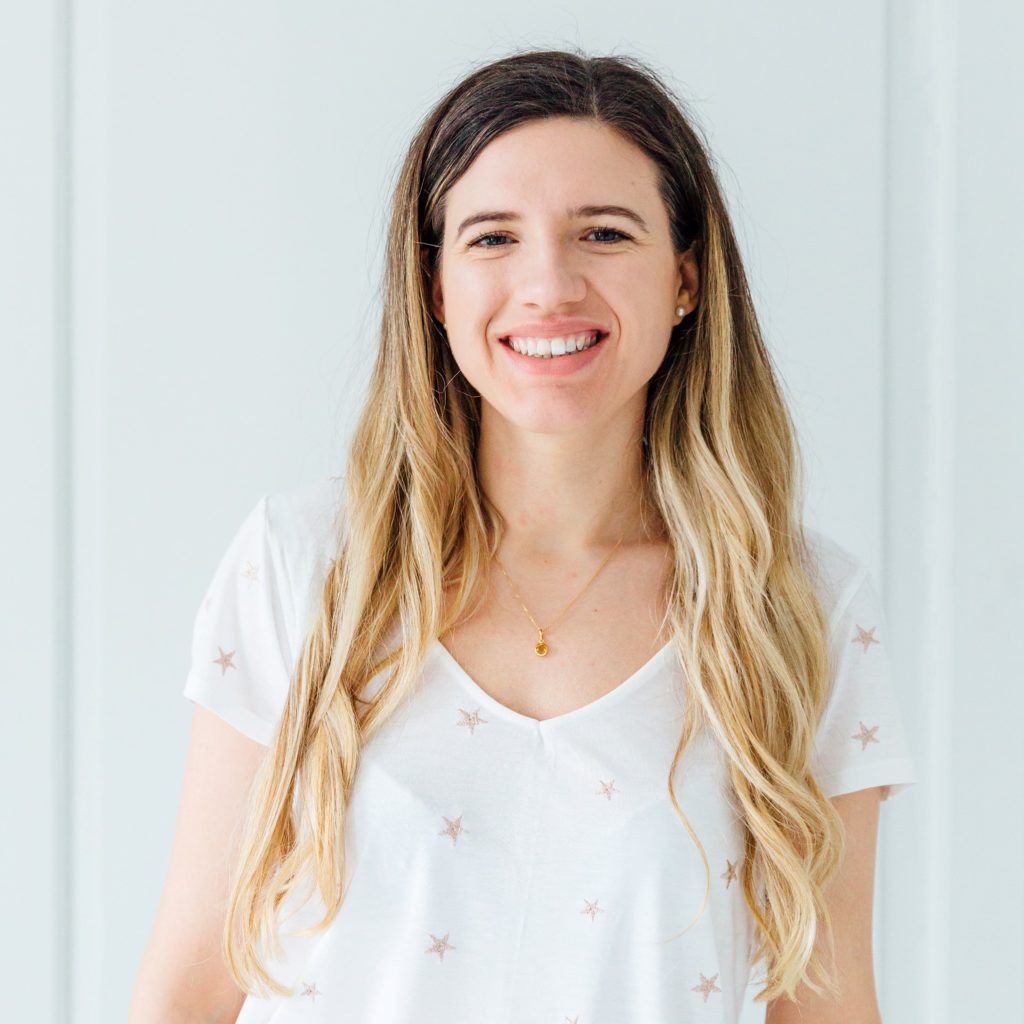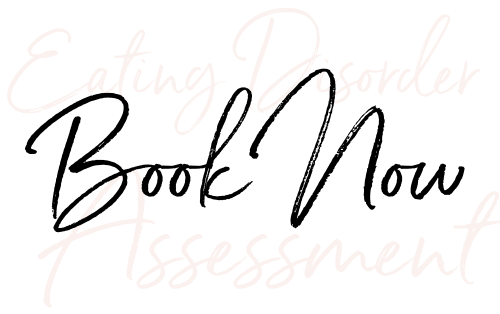
IMAGINE for a minute that you can travel back in time to before your relationship with food and your body changed.
Imagine yourself at that time. Things feel kind-of difficult.
Maybe there has been a big life change, maybe things seem out of control, or maybe something has happened to make you feel like the odd-one-out.
Then you meet someone new who says that s/he can help you.
You really want things to change, so you agree to let them try and help you.
This new person seems nice and they quickly become your friend.
S/he protects you and keeps you feeling safe.
You start to feel better.
The more you do what your new friend says, the more you feel like things are changing for the better.
They make you feel special.
However, gradually, you begin to notice that this friend thinks that they are better than you; they don’t let you have your own opinion.
You MUST do everything that they say.
You start to feel anxious when they are around, but you’re too scared and worried to stand up to them.
You might have tried to act against them before, but your friend is stronger than you, and you hate fighting with them.
Doing what they say seems like a better option than challenging them.
Your friend invites themselves on every family trip, to school/work parties, and even on dates!
This friend wants to spend every minute of every day with you.
They really must love you, right?
They demand your full attention
… you try and work – they keep interrupting before you even get half way through
… you try and relax – they are right there with you and that means that you can’t relax
… you try and have a conversation with someone else – the friend keep bringing it back to them
There is tension between your family/ friends and your new best friend.
You are always getting into arguments because they disagree with her/him.
Or maybe (somehow) you’ve kept your new friend hidden, because you fear what your family would say if they knew about the extent of the friendship and the things that your friends makes you think, and do.
Gradually, you push away your family and old friends.
Sometimes you want to repair those relationships, but it feels too late.
At first your new best friend encouraged you to be your best and to try harder. Now s/he tells you that you’re “too fat”, “stupid” and “worthless”.
“You don’t deserve food, or to take a rest day, or to be happy”. Or maybe they encourage you to eat all the food, and then make you feel guilty when you do.
Your best friend wants a sleep-over every night.
Sometimes they’re even whispering to you as you fall asleep, reminding you of everything you did wrong that day and how you need to try even harder to be perfect.
You know that you will get a break from them when you sleep.
Your best friend will stay the night and be right there when you wake up whether you want them to or not.
I totally understand why your eating disorder might feel like your best friend; it most likely came about at a difficult time in your life, it took your attention away from the other things that were going on, and when you couldn’t rely on anyone else, you could rely on it.
Maybe it made you feel good at something (i.e., sticking to food rules).
Or it gave you a sense of comfort and coping.
BUT
If an eating disorder is like a best friend, then I would argue that it’s a very toxic friendship.
Your friend is obsessive, controlling and abusive.
You deserve better.
If you had a real (a.k.a. flesh and blood) friend like an eating disorder, would you keep that friend around?
If you could go back and talk to your younger self, who had just met that new ‘friend’, would you warn them?
If you are ready (or even just tempted) to break-up with your eating disorder for good, then why not book an eating disorder assessment with Dr Rachel Evans?
During your assessment, Rachel will help you to expand the story of your relationship with the eating disorder and show you how change is possible.

Dr. Rachel Evans recovered from restrictive eating and bulimia, before completing her PhD in the psychology of eating and establishing her private practise to help others escape the eating disorder mindset, rituals and ‘hold’ it has on their life.


[…] Is your eating disorder your friend? […]